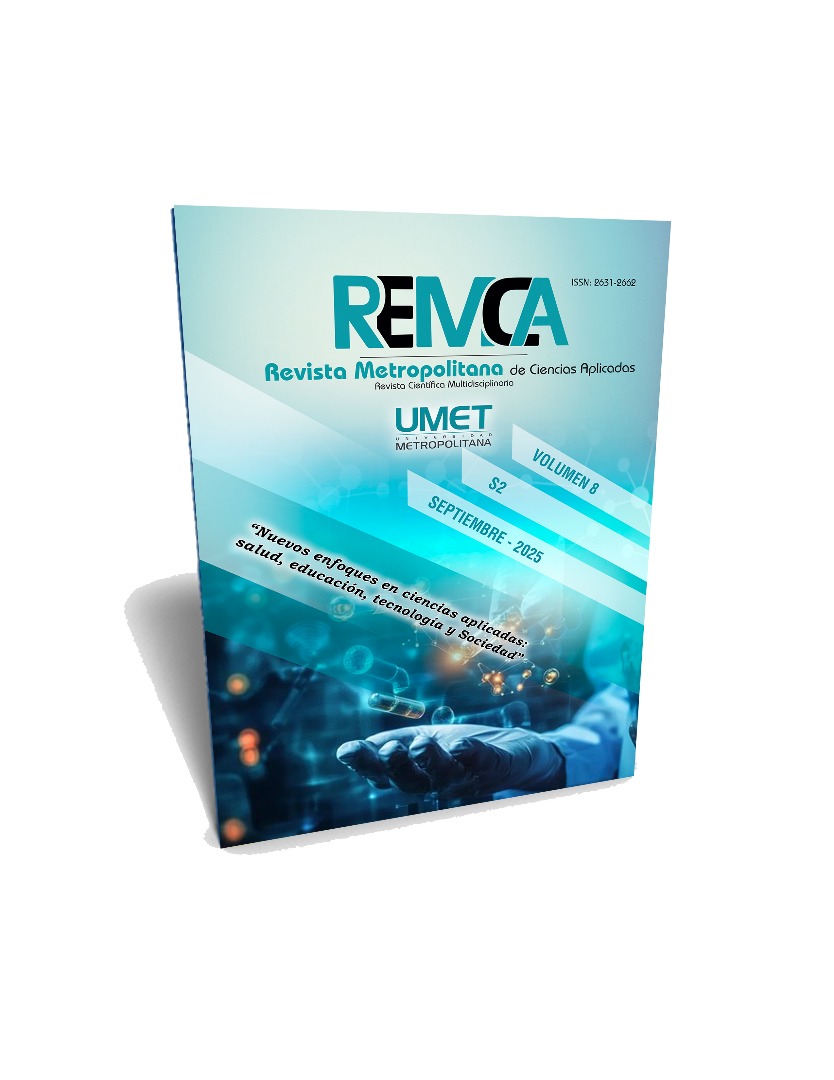Impact of procedural practice on access to justice through free legal clinics
DOI:
https://doi.org/10.62452/w17g5t95Keywords:
Access to justice, litigation, legal education, legal clinics, law and societyAbstract
This study examines the impact of legal litigation practices within Free Legal Clinics as a fundamental mechanism to ensure access to justice for vulnerable populations. Through a documentary review and analysis of representative cases, the research shows that effective legal representation not only strengthens users' fundamental rights but also serves as a key educational platform for law students. The paper discusses the legal, social, and pedagogical implications of this practice, as well as the institutional challenges faced by clinics amid growing demand. Findings highlight the strategic value of procedural engagement as a bridge between academic training and the social function of law, emphasizing its role in building a more inclusive and equitable justice system.
Downloads
References
Arcos Pazmiño, D. A., Flores Cano, K. N., & Méndez Cabrita, C. M. (2024). Implicaciones de las tecnologías emergentes en el ámbito judicial. Universidad Y Sociedad, 16(6), 306–315. https://rus.ucf.edu.cu/index.php/rus/article/view/4770
Barba-Tamayo, E. P., Haro-Avalos, J. L., Carrera-Ortiz, Álvaro I., & Segura-Fonseca, A. B. (2025). Caracterización de los usuarios del consultorio jurídico Unach-Conagopare como línea base de política pública. Debate Jurídico Ecuador, 8(1), 40–58. https://doi.org/10.61154/dje.v8i1.3712
Batris de la Cruz, A. R. C., & Pérez, O. (2022). El acceso a la justicia como un derecho humano en la construcción del estado de derecho. Revista Lex Mercatoria Doctrina Praxis Jurisprudencia y Legislación, 20, 1–19. https://doi.org/10.21134/lex.vi20.1775
Beneitone, P., Esquetini, C., González, J., Maletá, M. M., Siufi, G., & Wagenaar, R. (2013). Reflexiones y perspectivas de la educación superior en América Latina: Informe final - Proyecto Tuning América Latina 2004-2007. Universidad de Deusto. http://www.deusto-publicaciones.es/deusto/pdfs/tuning/tuning05.pdf
Bruzón Viltres, C. (2021). Simulación de audiencias virtuales como actividad de aprendizaje práctico en la carrera de derecho, UMET, Ecuador. Revista Universidad y Sociedad, 13(6), 275–285. http://scielo.sld.cu/scielo.php?script=sci_arttext&pid=S2218-36202021000600275
Fuentes-Águila, M. R., Castellanos-Fuentes, P. E., Bedón-Garzón, R. P., & Ávila-Urdaneta, J. G. (2025). Ley Orgánica de Garantías Jurisdiccionales y Control Constitucional comentada, concordada, anotada y con reflexiones teórico-prácticas. Parte I. Editorial UMET.
Hernández, B., & Rivadeneira, M. (2020). La argumentación jurídica en la formación de los estudiantes universitarios de Derecho. Boletâin Redipe, 9(3), 121–125. https://doi.org/10.36260/rbr.v9i3.935
Jaramillo, F., & Balanzátegui, R. (2025). La sobrecarga laboral y su incidencia en la satisfacción de los funcionarios públicos en el Ecuador. Revista Científica Multidisciplinaria InvestiGo, 6(15), 411–427. https://doi.org/10.56519/da81c084
Medina-Peña, R., & Torres-Espinoza, J. J. (Coord.) (2024). El neoconstitucionalismo en la protección de los nuevos derechos. Sophia Editions.
Naranjo Luzuriaga, E. J., Vinueza Ocho, N. V., & Diaz Basurto, I. J. (2022). Habilidades del estudiante de derecho para el desarrollo de prácticas de pruebas en juicio oral. Conrado, 18(89), 317–326. http://scielo.sld.cu/scielo.php?script=sci_arttext&pid=S1990-86442022000600317
Rodríguez Díaz, J. L., Cabrera Olvera, J. L., & Muñoz Guanga, A. P. (2022). El éxito de las Prácticas preprofesionales: ¿De qué depende? Revista Habanera de Ciencias Médicas, 21(2). http://scielo.sld.cu/scielo.php?script=sci_arttext&pid=S1729-519X2022000200015
Romero Noboa, W. P., Romero Oviedo, J. E., Fernández Villacis, M. J., Revelo Barrionuevo, L. A., & Carrasco Benavides, Y. N. (2025). Los Consultorios Jurídicos Gratuitos, y la Tutela Judicial Efectiva en Adultos Mayores. Tesla Revista Científica, 5(1), e417. https://doi.org/10.55204/trc.v5i1.e417
Vera, C., & Pérez, G. (2024). Acceso a la justicia para grupos prioritarios: una evaluación de los resultados del centro de apoyo de la Universidad San Gregorio de Portoviejo. European Public & Social Innovation Review, 9, 1–19. https://doi.org/10.31637/epsir-2024-770
Downloads
Published
Issue
Section
License
Copyright (c) 2025 Wendy Pilar Romero-Noboa, Nelson Francisco Freire-Sánchez, Cinthya Stefania Montesdeoca-Parra, María Josse Ramos-Castillo (Autor/a)

This work is licensed under a Creative Commons Attribution-NonCommercial-ShareAlike 4.0 International License.
Authors who publish in Revista Metropolitana de Ciencias Aplicadas (REMCA), agree to the following terms:
1. Copyright
Authors retain unrestricted copyright to their work. Authors grant the journal the right of first publication. To this end, they assign the journal non-exclusive exploitation rights (reproduction, distribution, public communication, and transformation). Authors may enter into additional agreements for the non-exclusive distribution of the version of the work published in the journal, provided that acknowledgment of its initial publication in this journal is given.
© The authors.
2. License
The articles are published in the journal under the Creative Commons Attribution-NonCommercial-ShareAlike 4.0 International License (CC BY-NC-SA 4.0). The terms can be found at: https://creativecommons.org/licenses/by-nc-sa/4.0/deed.en
This license allows:
- Sharing: Copying and redistributing the material in any medium or format.
- Adapting: Remixing, transforming, and building upon the material.
Under the following terms:
- Attribution: You must give appropriate credit, provide a link to the license, and indicate if any changes were made. You may do this in any reasonable manner, but not in any way that suggests the licensor endorses or sponsors your use.
- NonCommercial: You may not use the material for commercial purposes.
- ShareAlike: If you remix, transform, or build upon the material, you must distribute your creation under the same license as the original work.
There are no additional restrictions. You may not apply legal terms or technological measures that legally restrict others from doing anything the license permits.




